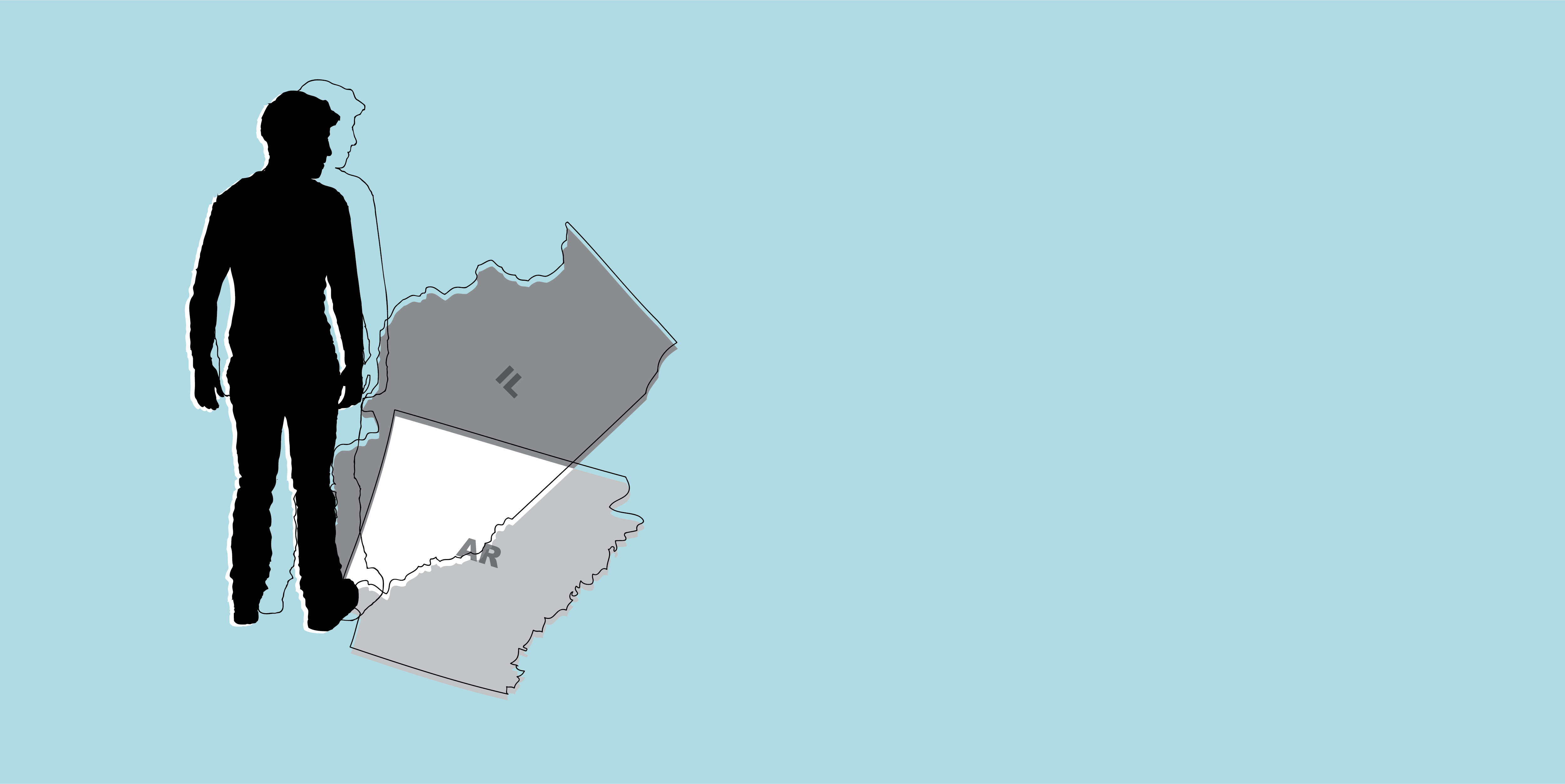My home is full of stories, stories of late-night-turned-early-morning cruises in my good buddy Cameron Matson’s 4Runner to towns we’d never heard of; stories of my catfish-farming great-grandfather marching poachers up to the farmhouse with a shotgun in their backs while my great-grandmother chewed through a whole jar of peppermints because it made her so nervous; stories of losing myself in the woods behind my grandparents’ home, following a creek fed by the Saline County sewer system and believing termite tracks in the oak bark were an ancient script left by marauders thousands of years prior.
It’s a straight, flat road from central Arkansas, from all those stories, to Chicago – more than 600 miles. Dad likes to say you can roll a nickel down the highway and it’ll get there just fine. He would know. In the early ‘90s, he and my mother, both native Arkansans, lived in an apartment on North Fremont Street only a couple blocks from Wrigley Field. Dad worked at Northwestern Memorial Hospital and biked past the stadium every night, checking the white flag flying over the scoreboard to see whether the Cubs won or lost that day. And after they moved back home to settle down and raise two kids, we’d make Chicago trips in the summertime, checking in on family friends and occasionally the Cubs, too.
A big part of college is finding fellowship with people as they undergo that same process of self-reconciliation, discovering who they are today in the context of their varied pasts.
When I started looking at colleges, I liked Northwestern for a lot of reasons. But I really liked the thought of Chicago, where it snows in the winters, where people take public transportation more than they drive and where my parents had lived when they weren’t a whole lot older than I am now.
For as long as I can remember, Dad has kept a red cloth bandana in his back pocket. A lifelong glasses-wearer, he’s used it to wipe down his lenses for more years than I’ve been alive. But it wasn’t until after I arrived in Evanston that I started keeping my own. There wasn’t any one reason I did that – more like a bunch of little reasons. It was part of a new style that went hand-in-hand with my hobby of setting up a hammock between willow branches on the Lakefill. I came to think of it as a good luck charm. I used it to clean my glasses. It made a great napkin, ice pack and faceshade whenever I found myself sleeping in the sunshine. But most importantly it was a little red reminder of all those stories that, collectively, I called home.
Northwestern’s an experience in making connections, not only those within oneself – between home and campus, in my case between the South and the city – but also among one another. A big part of college is finding fellowship with people as they undergo that same process of self-reconciliation, discovering who they are today in the context of their varied pasts. When we look close enough, we see the signs of that growth even without having grown up together.
People often ask me if I’d like to go back to Arkansas after Northwestern. I usually say no because I’m not sure it’d be the same.
Somebody saw that happening in me not two weeks after I settled into Evanston. Walking through the sorority quad, she noticed my bandana sticking out of my pocket and said, “Southern boy,” with a smile. I wasn’t embarrassed. In fact, it was even a little validating that the spirit of home, the Arkansas self, was still visible so far from it.
For a lot of people, Northwestern represents a chance to renovate their personas, to restyle whoever they were for 18 years in favor of somebody new and improved – who else would know the difference? But for me and, I imagine, for many others, the greater challenge has come in blending those selves, enfolding stories of catfish farms and termite tracks with stories of skyscrapers and snow.
People often ask me if I’d like to go back to Arkansas after Northwestern. I usually say no because I’m not sure it’d be the same. Many of the people I grew up with find themselves living that same process of self-reconciliation in places like Virginia and Tennessee and California. These days, Cameron’s 4Runner is parked somewhere in Texas. And here I am, in a suburb of Chicago, losing myself not among oak trees and sewer creeks but bus routes and train stations. I’m a long way from home, and I’m not sure when I’m going back, but I carry the stories with me in a little red bandana.

